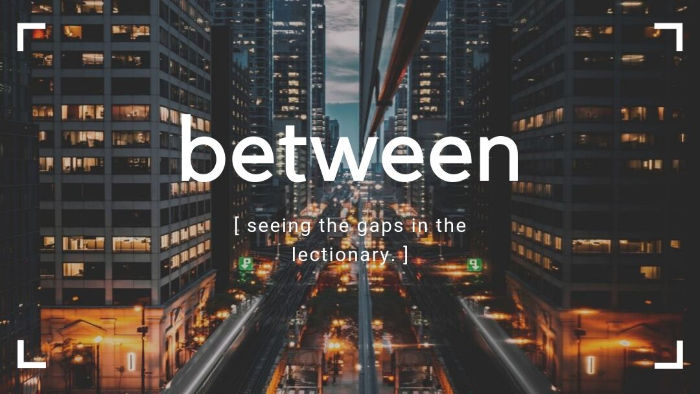
A look at the gaps in the lectionary.
This week: the gap between Lent 3B & 4B
The text: John 2:23-3:13
This week’s gap in the lectionary is a tough one to let go of. Both because it is really good and because it is good for us to read.
The second chapter of John has two banger stories right out of the gate. The first is the miracle at the wedding feast and then Jesus heads to the Temple in Jerusalem for the “cleansing”. Then it finishes chapter two this way:
When he was in Jerusalem during the Passover festival, many believed in his name because they saw the signs that he was doing. But Jesus on his part would not entrust himself to them, because he knew all people and needed no one to testify about anyone; for he himself knew what was in everyone.
John 2:23-25
There’s a depth to the evangelist’s testimony here. And there is a familiarity that the faithful has with the sentiment. But this is still super early in the ministry and in the gospel itself. So the evangelist is naming the notoriety that Jesus is developing and why. It is the signs—which probably shouldn’t be read as miracles. Few have actually witnessed any. But in himself and his work.
It is also an early reminder of Jesus’s apprehension in accepting the notice—and how disconnected it actually is with the work he came to do: to truly know people.
Hanging with Nicodemus
The story turns in chapter three to a late-night encounter with a Pharisee named Nicodemus: a man of significant stature and renown. Of course, his coming to Jesus under the cover of darkness, so as not to be seen, is easily noticed by Jesus.
Nicodemus’ hiding is both symbol and practical. There are practical reasons why he wouldn’t want to be seen with Jesus. But isn’t that also saying something?
I find the image relatable. People are afraid to be found out. For asking questions, perhaps. Or for not being the right kind of faithful.
We can also be afraid of being seen as faithful or by the faithful.
The cover of darkness hides our faults, for sure. But also any of our actions. Our joys and hopes.
This is the reality of Nicodemus’ seeking out Jesus. From the benefit of hindsight, we see that he doesn’t want to be caught being good! Seeking counsel from this particular rabbi. He isn’t hiding something bad, but something good!
Much of what we are prone to hide isn’t stuff that ought to shame us. But the stuff that makes us unpopular with powerful people.
Hiding good things
This also reverberates following the concluding verses of chapter two. Because Jesus himself is having others hide the good he is up to.
So what, then, are we to be on about?
To see some utility to hiding of the truth. But be careful with such an idea as a universal concept. We should avoid using it as a justification for a lack of transparency in leadership, for instance. I think this is more like: notice the impact of strategic discretion.
Not pushing fame to Jesus protects the movement. Meanwhile, Nicodemus uses the cover of night to explore unpopular truth. This is not unlike the silencing of demons in the gospel of Mark—Jesus prevents the spread of half-truths that compromise the ability to understand the whole truth later.
At the heart of it
Perhaps the most important part of the encounter with Nicodemus is not something Jesus says, but the statement made about him:
Rabbi, we know that you are a teacher who has come from God; for no one can do these signs that you do apart from the presence of God.
There isn’t a question here. But Jesus responds by laying out a direct connection with seeing the kingdom of God and “being born from above,” which spurs on a whole conversation.
What strikes me most about the whole encounter is that it begins with a faith statement from this one who doesn’t want to be seen. Who names something both obvious and profound. He expresses confidence (”we know”), trust (”come from God”), and faith (”no one…signs…presence of God”).
And all that comes after is a reflection of this. Primarily the presence of God.
Making connections
We get this story elsewhere in the lectionary, so most of us will likely focus on the ubiquitous John 3:16 this week. But I wonder how we dare to do so without Nicodemus. Without his faith claims before talking about God’s love so profoundly.
Doesn’t it feel like platitudes without people? Without striving to find truth? Afraid of what people might think? Affirming the very presence of God in Jesus?
So many treat holding a sign that simply reads “John 3:16” like they are making a bold statement of faith. It’s weak tea next to Nicodemus.
